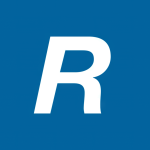Welcome to our dedicated page for Regeneron Pharmaceuticals news (Ticker: REGN), a resource for investors and traders seeking the latest updates and insights on Regeneron Pharmaceuticals stock.
Regeneron Pharmaceuticals, Inc. (NASDAQ: REGN) regularly issues news on its medicines, clinical programs and corporate developments across multiple therapeutic areas. As a biotechnology company focused on serious diseases, Regeneron’s announcements often cover advances in eye care, allergic and inflammatory diseases, oncology, hematology, cardiovascular disease, infectious disease and rare conditions.
News about Regeneron frequently highlights regulatory milestones for its marketed products. Recent examples include approvals for Dupixent (dupilumab) in additional indications and age groups, such as chronic spontaneous urticaria in the European Union and bronchial asthma in children in Japan, as well as expanded indications and dosing flexibility for EYLEA HD (aflibercept) Injection 8 mg in retinal diseases. The company also reports on new approvals for Libtayo (cemiplimab), including adjuvant treatment of cutaneous squamous cell carcinoma at high risk of recurrence after surgery and radiation in the European Union.
Investors and healthcare professionals can expect updates on Regeneron’s oncology and hematology pipeline, including data from trials of Lynozyfic (linvoseltamab) in multiple myeloma and odronextamab in B‑cell non‑Hodgkin lymphomas, as well as programs in paroxysmal nocturnal hemoglobinuria and severe aplastic anemia. Regeneron often presents such data at major medical meetings, and issues press releases summarizing efficacy and safety results.
Corporate and R&D collaboration news is another recurring theme. The company has announced partnerships such as its global collaboration with Tessera Therapeutics on TSRA‑196, an investigational in vivo gene editing therapy for alpha‑1 antitrypsin deficiency, and provides updates on its factor XI antibody program for anticoagulation. Regeneron also communicates scheduling of quarterly and annual financial results webcasts and investor events, including its ‘Regeneron Roundtable’ series.
This news page aggregates these types of updates so readers can follow product approvals, late-stage trial readouts, scientific presentations, strategic collaborations and financial reporting dates related to REGN. For ongoing research and investment analysis, checking this feed regularly can provide timely insight into Regeneron’s progress across its broad portfolio.
Regeneron Pharmaceuticals, Inc. announced FDA approval for Libtayo (cemiplimab-rwlc) in combination with platinum-based chemotherapy as a first-line treatment for advanced non-small cell lung cancer (NSCLC). This approval extends treatment options to patients regardless of PD-L1 expression or tumor histology. The approval is based on the EMPOWER-Lung 3 trial, which showed a median overall survival of 22 months for the Libtayo combination versus 13 months for chemotherapy alone. This significant improvement supports Libtayo's role in managing NSCLC, aiming for broader patient access.
Regeneron Pharmaceuticals announced late-breaking results from pivotal trials of aflibercept 8 mg for treating diabetic macular edema (DME) and wet age-related macular degeneration (wAMD). The trials PHOTON and PULSAR demonstrated non-inferior vision gains compared to EYLEA at 48 weeks, with 93% and 83% of patients maintaining dosing intervals of 12 weeks or longer, respectively. Additional analyses showed sustained anatomical improvements in both dosing regimens. The safety profile of aflibercept 8 mg was similar to EYLEA, affirming its potential to reduce treatment burden significantly.
Summary not available.
Regeneron Pharmaceuticals (REGN) announced that it will present new data at the 2022 American Society of Hematology (ASH) Annual Meeting from December 10-13 in New Orleans. Key highlights include Phase 2 data for odronextamab (CD20xCD3) in relapsed/refractory diffuse large B-cell lymphoma and follicular lymphoma and updated data for linvoseltamab (REGN5458) in multiple myeloma. An investor webcast is scheduled for December 14 at 8:30 AM ET to discuss the hematology portfolio further.
Regeneron Pharmaceuticals reported a 15% decrease in Q3 2022 revenues, totaling $2.94 billion, largely due to no sales from REGEN-COV. However, excluding this, revenues grew 11%. EYLEA's U.S. sales reached a record $1.63 billion, and Dupixent global sales rose 40% to $2.33 billion. GAAP diluted EPS was $11.66, down 19% from the previous year. Positive trial results for aflibercept 8 mg in diabetic macular edema and wet AMD were also announced. The FDA extended EYLEA's exclusivity by six months.
Summary not available.
Regeneron Pharmaceuticals has secured pediatric exclusivity for its drug EYLEA (aflibercept) Injection from the FDA. This grant extends U.S. market exclusivity by six months until May 17, 2024. The decision stems from two Phase 3 trials—BUTTERFLEYE and FIREFLEYE—aimed at treating retinopathy of prematurity in preterm infants. EYLEA currently treats various eye conditions and has an established safety profile supported by extensive research. The collaboration with Bayer continues for global development.
Immune-Onc Therapeutics has initiated the first patient dosing in the Phase 1 study of IO-108, a myeloid checkpoint inhibitor, targeting solid tumors. The company has established a clinical supply agreement with Regeneron (NASDAQ: REGN) to evaluate IO-108 alongside Regeneron's Libtayo® (cemiplimab). IO-108 has shown promising activity in various tumor types and will be assessed in multiple expansion cohorts as both a monotherapy and in combination therapies. Immune-Onc retains global commercialization rights and is focused on combining its treatments with existing T-cell checkpoint therapies.
Regeneron Pharmaceuticals announces a positive opinion from the European Medicines Agency's CHMP for its drug Libtayo (cemiplimab) to treat advanced cervical cancer. This recommendation is based on the Phase 3 EMPOWER-Cervical 1 trial, which demonstrated a 31% reduction in death risk compared to chemotherapy. The trial included 608 patients, with Libtayo showing safety without new adverse effects. The European Commission will make a final approval decision in the upcoming months, potentially expanding Libtayo's application in oncology.
Regeneron Pharmaceuticals announced that the FDA has accepted its supplemental Biologics License Application for EYLEA (aflibercept) Injection to treat Retinopathy of Prematurity (ROP) in preterm infants, with a decision due by February 11, 2023. ROP is a crucial cause of childhood blindness, affecting 1,100-1,500 infants annually in the U.S. The application is backed by two Phase 3 trials, which showed high efficacy rates, though it did not meet the primary endpoint of non-inferiority to laser treatment. Both studies reported consistent safety profiles for EYLEA. Regeneron maintains exclusive rights to EYLEA in the U.S.

